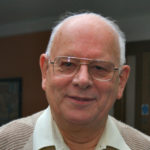A census of all the churches in Greater London took place last October. The initial results show that the number of churches in London in 2012 was very close to 4,800, an increase of 700 over the 4,100 counted by the English Church Census in 2005. That is an average net increase at the rate of two new churches every week for at least seven years! Naturally one asks where the significant increases have been made. They are in two broad areas – the black, and mostly Pentecostal, churches which account for two-thirds of this increase, and the many immigrant churches in the capital, which have more than doubled in number to 500.
Churches have opened and closed in all denominations and in all Boroughs (except one, Havering), but the largest increases were seen in the Inner London Boroughs, reflecting the large black population in Inner London.
Other immigrant churches are more evenly spread, and may be found across all denominations. There is, for example, an Urdu Methodist church, a Ghanaian Seventh-Day Adventist, a South African Anglican, a Polish Lutheran, a Chinese United Reformed, two Spanish Baptist churches, even a Catholic Goan church, and so on. There are churches in at least 54 different languages somewhere in the capital!
Some denominations such as the Lutherans and the Orthodox have dozens of churches, mostly serving those who have come from the different countries within Europe, even if all nationalities are welcome at them. Likewise more than 200 of the black churches serve those from Ghana, Nigeria and other African countries as well as over 400 West Indian churches. But there are many who deliberately welcome all, calling themselves ‘International’ or ‘All Nations’.
Some national churches have a long history in London. The Chinese and Korean churches, for instance, have been in London for several decades, as have Spanish and Portuguese. The Spanish have the largest number of churches, at least 26, followed by 24 Greek (mostly Orthodox), 13 Portuguese, 10 French, 10 Tamil, 9 Italian, 9 Korean, 8 Chinese, 8 Congolese, 8 Ethiopian, and 8 German, and so on.
Identification of such churches is not easy, usually done by the language used in their name, or the specific mention of a particular country, so it is likely that a number will have been missed, especially African churches which tend to use a Pentecostal or Bible name rather than a country, so there may well be more. Many of these churches are evangelical; if an immigrant has to struggle with English from Monday to Saturday, they will often gladly go to a church speaking their own language on a Sunday, whether they are used to churchgoing or not, simply to be able to converse in their own tongue! Thus does the Lord build his church despite (or because of) the upheaval of international relocation.

